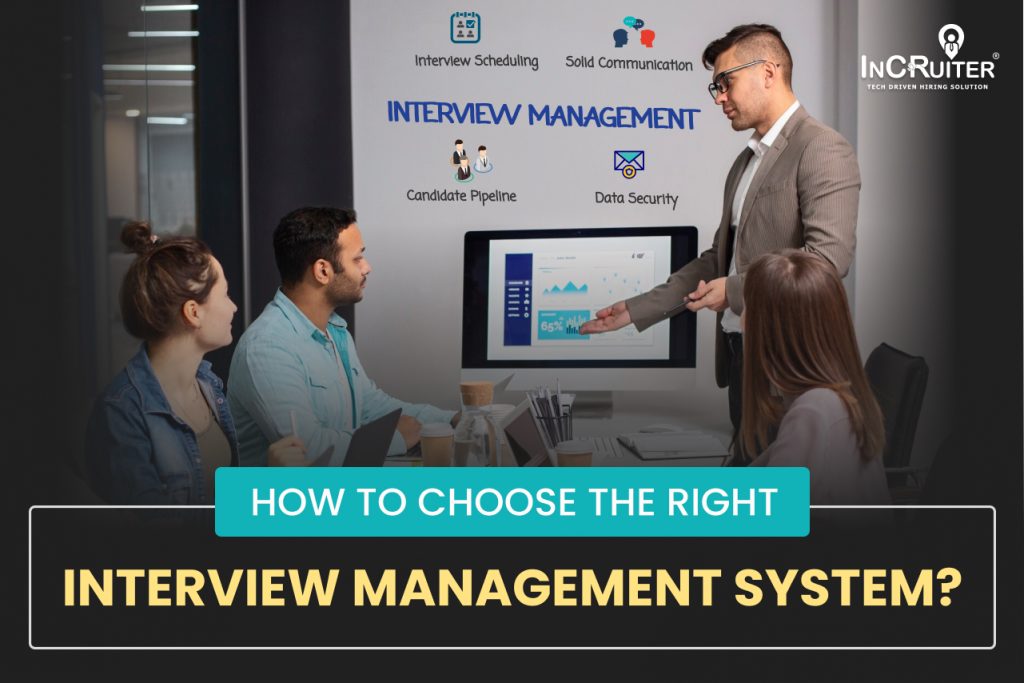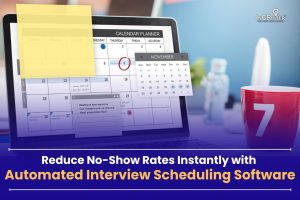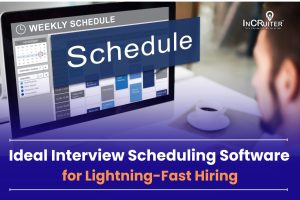
As a recruiter, have you ever wondered about having an interview system that not only makes interviewing faster but also effective? With several candidates vying for positions, managing interviews efficiently can be a daunting task. Picture a solution that simplifies your interview process, promotes better collaboration, and improves the overall candidate experience. That’s what the interview management system offers.
An interview management system is a one-stop shop that offers hiring solutions, from scheduling interviews to assessing candidates. 73% of organizations reportedly use an IMS platform, and the number will only grow. However, with tons of options available, choosing the right interview management platform for your business can be overwhelming. Don’t worry; we’ll guide you there, but first, let’s understand what the hype is all about.
What is an Interview Management System?

An interview management system is a modern-day hiring solution that helps streamline and automate the interview process. It offers a designated platform for scheduling interviews, coordinating communication between recruiters and candidates, and managing all related documentation and feedback. These interview management systems often integrate with existing applicant tracking systems (ATS) and other HR software to ensure seamless data flow and a cohesive recruitment experience.
Also Read: Calendly vs. InCFeed: The Best Interview Scheduling Software
Tips to Choose the Right Interview Management System

Now that you know what an interview management system is, the question that arises is which one you should choose. Choosing the right platform can be tough, considering there are so many options available in the market. However, we bring to you some tips that will help you decide which interview management platform is right for your business. Keep scrolling.
Assess Your Needs
Always start by assessing your company’s hiring needs and what the pain points are. Consider the size of your organization, the hiring volume, your budget, and the complexity of your interview process, and see if you need a basic or an advanced tool. On the basis of these criteria, you can shortlist and decide on one software that works for you.
Choose a User-friendly Platform
Look for a user-friendly platform that ensures a good recruiter and candidate experience. Opt for an IMS (Integrated Management System) with intuitive navigation, customizable dashboards, and seamless integration with tools like ATS and calendar applications. Also, always ask for a demo before finalizing one so that you and your team can have hands-on experience with the software.
Opt for Scheduling Flexibility
According to research, 40% of recruiters spend more than two weeks on the interview process, with interview scheduling being the most time-consuming aspect. Opt for an interview management software that offers automated scheduling, allowing candidates to select interview slots based on their availability while syncing with interviewers’ calendars.
Go Through Case Studies and Success Stories
Before finalizing any interview management system, read its case studies and customer reviews to get an idea about the product. Real-world examples speak volumes, so consider going through them and reading about companies that have used such systems. Check how the software helped the company and what metrics were used.
Look For Communication Features
Choose an IMS that offers seamless communication between interviewers and candidates. InCruiter’s interview management system offers features such as automated email and WhatsApp notifications, interview reminders, slot mapping, etc. These features will provide you with a smooth interview scheduling process, which in turn leads to a positive candidate experience.
Check Data Security and Compliance
In today’s time, data security is non-negotiable for businesses when it comes to using third-party softwares. Select an interview management system that offers a strong data protection policy. Choose companies like InCruiter that comply with industry standards such as GDPR and provide robust security measures such as data encryption, role-based access controls, and regular audits.
Also Read: 5 Biggest Hiring Challenges Faced by Recruiters in 2024
Summing Up
Deciding the right interview management system for your business is a crucial decision. You must ensure that whatever system you choose fulfills all your business requirements and complies with your budget.
By evaluating your needs and taking into account aspects like usability, scheduling flexibility, communication capabilities, data security, integration, scalability, and customer reviews, you can select an IMS that aligns with your business goals.
So don’t wait; transform the way you hire!
Also Read: Best Interview Scheduling Software in 2024
Ans: An Interview Management System benefits recruiters by saving time through automated scheduling, reducing administrative burden, improving communication with candidates, and providing insights through analytics.
Ans: Though both have similar functionalities, IMS (interview management system) and RMS (recruitment management system) are not the same. It streamlines tasks such as scheduling interviews and coordinating with candidates and interviewers. IMS focuses specifically on managing the interview process.
Whereas, RMS encompasses a wider range of functionalities beyond just managing interviews. It typically includes features for job posting, candidate sourcing, applicant tracking,
Ans: An IMS improves the candidate experience by offering self-scheduling options, providing clear communication about interview details, reducing wait times, and ensuring a smooth interview process.
Ready to Transform Your Hiring Process?
Discover how our AI-powered interview platform can streamline your recruitment and find the best candidates faster.






